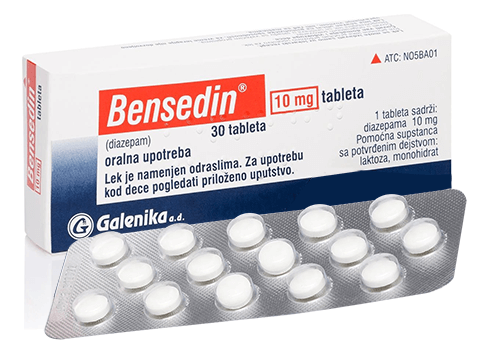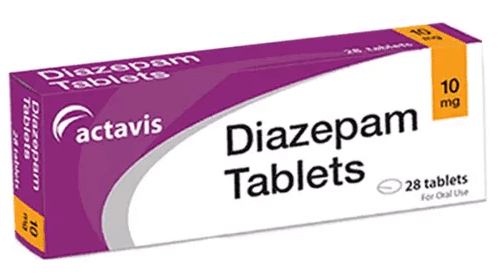Valium
April 23, 2023 2024-03-09 9:15Valium
What is Valium?
Valium is a benzodiazepine class of drug whose generic name is diazepam. It is a sedative, tranquilizer, antidepressant and muscle relaxant.
What are the Uses of Valium?
Following are the major uses of Valium:
- Anxiety Disorders – like depression, generalized anxiety disorder etc.
- Muscle Spasms – It relaxes the muscles and reduces stiffness.
- Sleep Issues – It can be used in problems like insomnia.
- Seizures – Valium is used to treat some seizures.
- Pre-operative Anxiety – Valium helps reduce anxiety before surgery.
Valium’s main mechanism of action is to have a sedative effect in the brain by stimulating GABA receptors. However, it may also have side effects such as drowsiness, dizziness, dependence and addiction etc.
What are the uses of Valium?
Following are the main uses of Valium (diazepam):
Anxiety Disorders: Valium is most commonly used to treat various types of anxiety disorders such as Generalized Depression Disorder, Social Anxiety Disorder, Panic Disorder, etc. It reduces symptoms of anxiety, stress and depression.
Muscle Stiffness (Muscle Spasms) Valium is used to reduce muscle stiffness and tension. It is used to treat muscle stiffness caused by arthritis, injuries, or other conditions.
Pre-operative Anxiety Valium is used to reduce nervousness and anxiety before surgery. It provides peace.
Sleep Disorders
Valium may also be prescribed to treat sleep problems such as insomnia.
Seizures Valium can be used to treat certain types of seizures, such as myoclonic seizures and depression-related seizures.
Alcohol Treatment (Alcohol Withdrawal) Valium is sometimes prescribed to reduce tremors and other withdrawal symptoms during alcohol withdrawal.
What are the benefits of Valium?
Valium (Valerian) is a medicinal plant that has many health benefits. Some of its major advantages are:
Improves sleep: Valium syrup and supplements are commonly used to treat insomnia. It helps in reducing stress and getting peaceful sleep.
Reduces stress and anxiety: Valium is rich in anti-anxiety properties that help reduce stress, anxiety and psychological tension.
Relaxing muscles: Its spasmolytic properties help reduce muscle tension and spasms.
Improves mental function: Some studies have shown that Valium may help improve memory and mental function.
Diabetes control: Research has shown that Valium may help regulate the endocrine system by improving the body’s insulin sensitivity.
What are the side effects of Valium?
Some possible side effects of Valium are:
Sleep problems: falling asleep, falling asleep deeply, or waking up while sleeping.
Nausea and dizziness: Especially seen more in the elderly.
Constipation or diarrhea: Valium affects the digestive system.
Headache: May cause headache in some people.
Hypersensitivity: Allergic reactions like rash, itching, swelling etc.
Effects on liver: Long-term consumption may affect liver function.
Effect on body signals: spinal pain, changes, nervousness etc.
Effects on cognitive function: Memory, attention and physical coordination may be affected in some people.
Intoxicating effects: Taking excessive amounts can cause intoxication.
How to use Valium?
Valium should be used cautiously and under the supervision of a physician. Some of its major uses and ways of taking are as follows:
Tablets/Capsules: A dosage of 300-900 mg is usually given for sleep problems and anxiety. Take the tablets or capsules before sleeping at night.
Syrup: Syrup form is popular for children and elderly. Take it in the quantity prescribed by the doctor.
Liquid extract: The more powerful form is the extract or juice of the herb. The starting dose is 1-3 ml.
Tea: Valium alum tea can be drunk to relax and reduce stress. Add 2-3 spoons in tea.
Tincture: Liquid extract of the herb that contains a concentrated extract of valium. Mix a few drops in water and take.
The dosage depends on your age and health condition. Start with a low dose initially and increase gradually.
How Does Valium Work?
Valium has various effects on the body due to its active ingredients. The way it works is as follows:
Increasing gamma-aminobutyric acid (GABA) levels: GABA is a major sedative neurotransmitter that calms nerve signals. Valium increases the production and use of GABA, which helps calm the body and mind.
Serotonin reuptake inhibition: Serotonin is a mood regulating neurotransmitter. Valium increases its levels by inhibiting its reuptake, which improves mood.
Anti-oxidant properties: Some compounds present in Valium help fight free radicals and reduce stress.
Relaxing muscles: Its spasmolytic properties reduce muscle tension and spasm.
Hormone regulation: Valium regulates the levels of various hormones in the body like cortisol, melatonin etc.
Thus, Valium calms and balances the body by affecting several neurotransmitters, hormones and other compounds, thereby reducing stress, anxiety and sleep problems. However, its long-term consumption can be harmful.
Safety Advice
Brief information on safety advice to consider when taking this medicine.
The following safety precautions should be taken when taking Valium medication:
Medical monitoring: Take Valium only under the supervision and advice of a doctor. Do not decide the dosage yourself.
Avoiding alcohol: The combination of Valium and alcohol increases the risk of sleepiness and dizziness.
Pregnancy/Breast-feeding: Avoid taking Valium during pregnancy and breast-feeding as it may harm the baby.
Children and the elderly: Children and the elderly are usually given lower doses.
Avoid driving/driving machines: Valium can cause sleepiness and dizziness.
Avoid mixing medications: Mixing Valium and other relaxing medications can be life-threatening.
Pay attention to persistent side effects: Contact a doctor immediately if fainting, difficulty breathing, etc. occurs.
Avoid addiction: Suddenly stopping Valium can lead to addiction. Quit slowly under doctor’s supervision.
Dosage of Valium
The dosage of Valium depends on the following factors:
Purpose of Use:
For sleep problems, a dose of 300-900 mg is given before going to bed at night.
A dosage of 120-200 mg a day is prevalent for anxiety and stress.
Age:
The usual dose for adults is 300-600 mg daily.
For the elderly, the dose is less i.e. 125-300 mg.
Doctors prescribe lower doses in children.
Gender: Women are usually given lower doses than men.
Health Condition: If there are liver or kidney problems then the dosage is further reduced.
Severity: The dosage is increased in more severe cases.
Drug Interactions of Valium
Valium can cause side effects when combined with many other medications. Therefore, special attention should be paid to the following drug interactions when taking Valium:
Sedative medications: Valium when combined with sedative medications like alcohol, opioids, benzodiazepines can cause sleep and breathing problems.
Antidepressants: Valium and antidepressants such as fluoxetine may enhance each other’s effects.
Antipsychotics: Antipsychotics like Valium and clozapine can cause paralysis and severe sleep problems when taken together.
Cimetidine: Acid reflux medications like cimetidine may increase the effects of Valium.
Rifampicin: This anti-TB drug increases the breakdown of Valium.
Zinc and iron supplements: These reduce the absorption of Valium.
Herbal supplements: Sturgeon mushroom, melatonin, etc. may increase the side effects of Valium.




